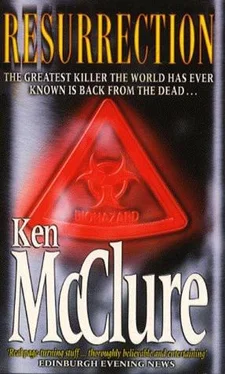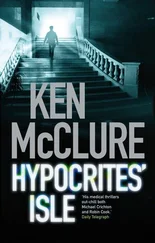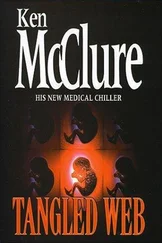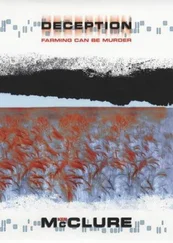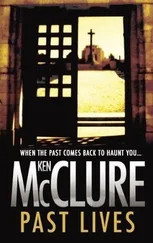Ken McClure - Resurrection
Здесь есть возможность читать онлайн «Ken McClure - Resurrection» весь текст электронной книги совершенно бесплатно (целиком полную версию без сокращений). В некоторых случаях можно слушать аудио, скачать через торрент в формате fb2 и присутствует краткое содержание. Жанр: Триллер, на английском языке. Описание произведения, (предисловие) а так же отзывы посетителей доступны на портале библиотеки ЛибКат.
- Название:Resurrection
- Автор:
- Жанр:
- Год:неизвестен
- ISBN:нет данных
- Рейтинг книги:5 / 5. Голосов: 1
-
Избранное:Добавить в избранное
- Отзывы:
-
Ваша оценка:
- 100
- 1
- 2
- 3
- 4
- 5
Resurrection: краткое содержание, описание и аннотация
Предлагаем к чтению аннотацию, описание, краткое содержание или предисловие (зависит от того, что написал сам автор книги «Resurrection»). Если вы не нашли необходимую информацию о книге — напишите в комментариях, мы постараемся отыскать её.
Resurrection — читать онлайн бесплатно полную книгу (весь текст) целиком
Ниже представлен текст книги, разбитый по страницам. Система сохранения места последней прочитанной страницы, позволяет с удобством читать онлайн бесплатно книгу «Resurrection», без необходимости каждый раз заново искать на чём Вы остановились. Поставьте закладку, и сможете в любой момент перейти на страницу, на которой закончили чтение.
Интервал:
Закладка:
Le Grice said simply, ‘You know?’
Dewar nodded. ‘I know it was some time ago and nothing is going to happen about it now but things have changed. Any more of that and you can kiss your career good-bye, Monsieur.
George Ferguson was not in the lab. Sandra explained that he and Malloy had been ‘a right couple of heroes yesterday’. George was currently being thanked by ‘the powers that be. Dewar asked what had happened and was given a run down on what Malloy and Ferguson had done.
‘Better them than me.’
‘Me too,’ agreed Sandra. ‘Would you like to see round the lab?’
‘Sure would.’
The lab struck Dewar as being untidy. This was due in part to a lack of space — people were vying with pieces of equipment for useable bench area. Rows of notebooks filled up the window sills. Racks of test tubes were piled three high and electrophoresis photographs were hanging all along the wall from clips on wall hooks. ‘How d’you ever find anything?’ he asked, making it sound like a joke.
‘It only looks a complete mess,’ replied Sandra. ‘We know where everything is. A tidy lab is a sterile lab, that’s what Steve always says. If you’re polishing benches it means you can’t think of an experiment to do.’
‘A point of view, I suppose,’ said Dewar.
After ten minutes or so of passing the time of day with Sandra and Peter — Pierre Le Grice had decided to keep his own company and busied himself about the lab, George Ferguson returned to loud demands from the others to show them his medal.
Ferguson laughed. ‘No medal,’ he said. ‘Only a few precious words from HerrDirektor to inspire me and make it all worth while.’
‘George, this is Doctor Dewar. He’s inquiring into Ali’s death,’ said Steven Malloy.
Dewar shook hands with Ferguson and asked him the same questions as the others about the dead student. His reply was much the same. He, like everyone else in the lab, had liked Ali. His death had come as a complete shock.
‘Did you know what Ali was working on?’
Ferguson shrugged and said, ‘Only in the broadest of terms. I’m a hospital technician who had the hospital taken from under him. I look after the virus stocks and see to the culture media. This new molecular stuff is largely beyond me and you can’t teach an old dog new tricks.’
‘It must have been a bit of a change to come here?’
‘Ferguson smiled at what he saw as understatement. ‘I’d been at the City for thirty two years,’ he said.
‘Must have been tempting to call it a day and take early retirement?’
‘The bank manager disagreed,’ said Ferguson.
Dewar smiled. ‘No golden handshake on offer eh?’
‘From the NHS? Pull the other one.’
‘You seem to have settled in well with the group here.’
‘It’s a temporary thing. Steve had a vacancy but whether he’ll get a new grant or not is another matter. If he doesn’t I’ll be out the door come Christmas. My face doesn’t really fit in the institute anyway.’
‘Why not?’
‘Times change. These days science graduates outnumber jobs ten to one. You need at least an upper second to get a job that would have gone to an ONC ten years ago. If the job involves making the tea as well, we’re talking about a PhD.’
Dewar smiled and said, ‘I hope something works out for you.’
He had a last meeting with Paul Hutton to thank him formally for his cooperation.
‘Does that mean you are finished with us?’ asked Hutton.
‘I should think so,’ replied Dewar. ‘Unless there are any more developments.’
‘You’re returning to London today?’
‘I’m going to show my face at the Iraqi students association. I’ll take it from there.’
SEVEN
The Iraqi students association was on the first floor of a Victorian building in a street largely taken up with restaurants offering cuisines of the world. The street was narrow, the buildings tall and traffic fumes hung in the air like a November fog. The smell of foreign food mingled with vague damp odours of plaster and cats as he climbed the badly lit stairs and knocked on the door with the brass plaque and Arabic inscription on it.
A young man answered, obviously surprised to see a westerner standing there. ‘What do you want?’ he asked in clipped but otherwise perfect English.
‘My name’s Dewar. I’d like to speak to any friends of Ali Hammadi.’
‘He is dead.’
‘I know he’s dead. That’s why I’d like to speak to them.’
‘You are a policeman?’
‘Not exactly.’ Dewar showed him his Sci-Med ID card.
The man seemed to compare the photograph on the card with the reality several times before deciding that it might be a reasonable likeness. ‘Dr Adam Dewar,’ he intoned.
‘That’s me,’ Dewar agreed.
‘Come inside.’ said the man, suddenly turning on his heel and leaving Dewar to close the door behind them. They passed along a narrow hallway past a series of grey-painted doors leading off into badly lit rooms as far as Dewar could determine. Single, unshaded light bulbs seemed to be the preferred source of illumination and, in rooms with ceilings twelve feet high, there seemed to be more shadow than light.
There were about twelve people in the room Dewar was finally shown into; they sat separately in groups of three or four and all looked about the right age to be students. The furnishings in the room were old and the heavy curtains on the windows looked as if they hadn’t been cleaned since the turn of the century. They hung behind several faded velvet-covered couches, each with one single wood-scrolled arm. The scene reminded Dewar of a Victorian illustration of an Opium den. A few of the students had note books open and appeared to be discussing course work.
The man who had answered the door said something to them in Arabic. Dewar picked out the word Hammadi.
There was a prolonged silence while everyone looked at Dewar impassively then one student got up and came over. He smiled, showing perfect teeth. ‘I am Tariq Saadi, Ali was my friend,’ he said. ‘Perhaps you’d like some coffee?’
Dewar sipped bitter coffee while Saadi, a postgraduate student in Mathematics, told him what he knew of Ali. He and Ali had in fact, come from villages in Iraq not more than twenty kilometres apart but knew each other only slightly before going to Baghdad to do their first degrees, meeting up properly and becoming firm friends. Both had been delighted when they managed to get on to the foreign study programme together.
‘We didn’t think it would be possible for us to travel abroad but science is above political difficulty,’ said Tariq. ‘The politicians may disagree but the universities continue to communicate.’
‘Good,’ said Dewar. ‘How are your studies going? he asked, hoping to gain the man’s confidence.
Tariq shrugged and smiled. ‘Sometimes I struggle.’
‘Was it the same for Ali?’
‘Oh no,’ smiled Tariq. ‘Ali was very clever and so …’ he searched for the word … ‘about his science.’
‘Enthusiastic?’ suggested Dewar.
‘Yes, thank you, enthusiastic but more … dedicated is the word.. For Ali, science was everything. All he was interested in. The sky was the limit and one day he was going to do great things. He said it would be possible to have enough food for everyone on the planet. An end to starvation would be made possible through molecular biology and the cloning of the genes.’
Dewar smiled at the idealism of youth. Molecular biology might well enable scientists to do these things but it wasn’t going to happen. It wasn’t going to happen because no one invested money in things that didn’t make a profit and feeding the hungry wasn’t a paying proposition. Ali Hammadi would not now live to discover that awful truth. There was no point in pointing it out to Tariq.
Читать дальшеИнтервал:
Закладка:
Похожие книги на «Resurrection»
Представляем Вашему вниманию похожие книги на «Resurrection» списком для выбора. Мы отобрали схожую по названию и смыслу литературу в надежде предоставить читателям больше вариантов отыскать новые, интересные, ещё непрочитанные произведения.
Обсуждение, отзывы о книге «Resurrection» и просто собственные мнения читателей. Оставьте ваши комментарии, напишите, что Вы думаете о произведении, его смысле или главных героях. Укажите что конкретно понравилось, а что нет, и почему Вы так считаете.
